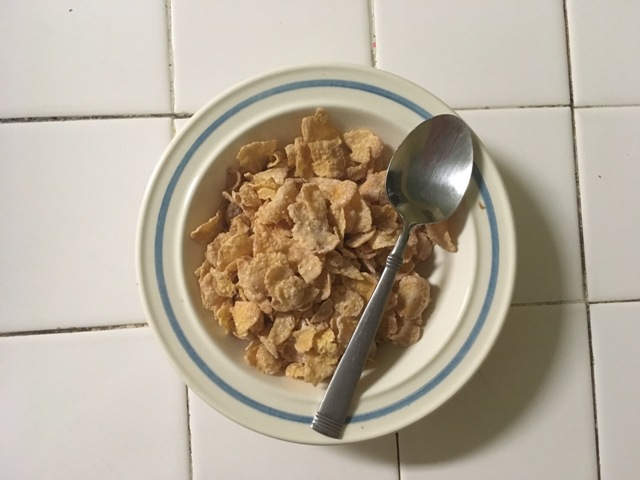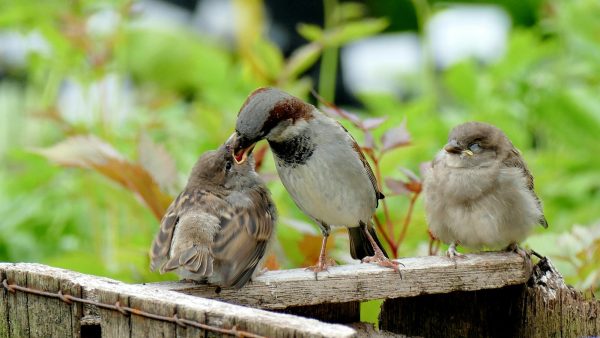White Walls
And every morning, the white wall would whisper, “Hello,” to the sun every morning. “You’re here,” the white wall would whisper, and smile.
December 19, 2016
In the kitchen, the walls were painted white. There were golden knobs on wooden cabinets, dishes scattered over the granite countertop, the dishwasher taking a temporary sabbatical from cleaning plates and bowls. A light fixture hung solemnly over the tiled table with grace, and there was a bowl filled with plastic fruits in the middle. The four chairs, two of which had semi-broken legs, sat like a family having dinner around the table. The pantry was stocked with off-brand bags of chips and cans of soup, packs of peanut butter cheese crackers chewed open by a particular skeevy mouse. A bag of pretzels was ripped open and left for stale. Mousetraps hid underneath the racks, supplied with peanut butter, knowing the mouse’s affinity for it.
The walls were painted white. Cobwebs in the corners of the ceiling collected like one would stamps or leaves. Placed on display.
And there was a window with the sun shining through beside the table, making reflections on the sides of plastic apples and grapes, and the white wall that faced the table felt the affection from the sun. That particular wall had the best sight of the sun when she rose from her sleep, and the best sight of the sun when she shone all day, and the best sight of the sun when she said goodbye. And the white wall beside the window in the kitchen was in love with the sun.
And every morning, the white wall would whisper, “Hello,” to the sun. “You’re here,” the white wall would whisper. And smile.
And every morning, a girl with her hair in a bun and her flannel rolled up to her elbows would leave in skinny jeans and stylish boots with her laptop in a bag on her back. She would stomp her feet hurriedly down the steps of the porch to her job and her classes, and she’d return at night, sometimes with friends, sometimes with new books, sometimes with lovers.
And every day, the white wall would watch the sun move through the sky, slow and patient. And by the time the girl got home, the sun was gone, and the wall would wait through the night. And the girl would be lonely.
Every weekend, the girl would bring home girls. The white wall would notice the girls walking up the porch because the sun was gone now and the wall needed something new to love temporarily. The girls would have peach sweaters, high heels, curly hair, faces painted with makeup, short and tight dresses, leather boots, buzzed haircuts, bridged noses, plump lips, eyes clear of eyeshadow, girls wearing band shirts with ripped jeans and crop tops with shorts and blank white t-shirts with gray jackets.
Every day, the white wall would love the sun and missed her when she was away. The wall loved her, and she would never know.
The girl loved only in temporary moments, like the way her dishwasher only worked in occasional increments, until she didn’t anymore.
The wall watched her bring home a stranger, with beautiful plush lips and black hair wildly fallen around her shoulders, and memorized the context of her being.
She left in the morning holding her shoes in her hands, waving goodbye to the girl who stood by the doorway. The wall smiled at her because with her departure, the sun’s light peeked through the trees. The wall whispered, “Hello.”
The next morning, the girl with her hair pulled into a bun ate breakfast alone but with a smile on her face. Her spoon singularly clinked against the side of the bowl.
Over the next few weekends, the girl with the bun and her flannel rolled up to her elbows would leave for the day and not come back until the next morning, or she would come home, the girl with wild hair to her shoulders in hand. And they would have breakfast together, their spoons clinking while they talked about trivial but sweet things. Like cereal, or when they’d see each other again. They made plans while the wall half-listened, more attentive to the morning sunrise.
Time was a fleeting concept to the white wall, who only knew time as the accumulation of cobwebs in the corners of the ceilings or the period of waiting for when the wall would see the sun again. The wall had watched the sun ever since the beginning, ever since the wall had been constructed up from her foundations. But sometimes the wall would watch the girl with the bun and the girl with wild hair walk down the porch steps, attached by their hands.
The white wall ached to hold the sun, mourning that the closest she would get to holding the sun would be only feeling her light. And the wall wished to be warmer.
One night, during the time when the wall was bored, the girl in the bun and the girl with the wild hair didn’t kiss like they usually did, or hold hands, or talk in the sweet manner they did when they ate dinner together around the plastic fruit bowl. Instead, their voices were harsh, banging against the walls, filled with contempt and a hatred the wall didn’t know whether or not it was temporary.
But the girl with wild hair left that night with a slam of the door behind her, stomping heavily on the porch steps, and the girl with the bun cried at the table silently and then not silently.
She didn’t come back. She didn’t come back the next morning for a breakfast of sugary cereals, or the next night for a shared recipe she would teach her girlfriend that her grandma had taught her, or the next weekend to spend the night in her girlfriend’s bedroom.
The wall didn’t see her again. Neither did the girl with her hair pulled into a bun. And the girl would pull her legs up to her chest as she sat in the creaky kitchen chair. And for the first time, the wall and the girl watched the sun rise together. The wall was happy, and the girl, for the first time in a while, felt happy too.
And with a sense of resolve in her light-hearted chest, she left the house with morning light draped over her. The wall was proud that the sun made light that was so beautiful.
When the girl returned, her hair was cut instead to the bottom of her ears, tickling the underside of her jaw, carrying two cans of creamy yellow paint.
The wall, who had realized long ago that the sun would never love her back or notice her, seized with dread at the idea of change and revision, for fear that perhaps the sun loved her with the same shyness and would never recognize her again.
As the girl with ticklish hair opened the cans of paint, the wall stared at the sun and cried, looking between the yellowish light of the sun and the cans of paint that looked like the dandelions that grew in front of the house in the spring. As paintbrushes dunked into the dandelion yellow, the wall stiffened her upper lip, and the cool of new paint spread over the wall in means of reinvention. In the same way that the sunlight was yellow, the wall was simply in love with the idea that she too might be as beautiful as the yellow sun and the things the sun made grow.
The white wall, covered now in two coats of dandelion yellow, rediscovered new ideas of beauty. And loved herself as much as she loved the sun. She glowed as the sun’s light touched her. And she felt held.













